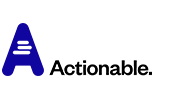There’s no other way to say it: I am a recovering workaholic.
Most of my career has been spent working with companies that encouraged my overworking tendencies. Aggressive, outcomes-focused environments, where targets were discussed more than feelings, and goal tracker dashboards were proudly displayed. For more than 20 years, goal pursuit was the hamster wheel focus of my working life: set high (often unrealistic) targets, build a plan to achieve them, and pursue the required tasks at all costs. Rinse, repeat.
Without fail, my list of goals was always too long, and never fully achieved. I set unrealistic expectations for what I set out to accomplish each year, month, week and day, and berated myself when I failed to meet them, despite the fact that there weren’t enough hours in the day to even remotely accomplish it all. I’d try to push the clock as much as I could, skipping workouts and sleep to get more done, but always feeling like I was slipping further behind. I was unhealthy and miserable.
Finally, I had an epiphany last fall when I sat down to plan my Q4 targets. As I read my notes from earlier in the year, hoping to find insights to help me get more done, I realized I rarely talked about wins, only where I had fallen short. The added irony was that as a business owner, I had full control over my goals and the schedule I was setting.
I had become my own worst boss, and I needed to rethink my approach to how I worked.
Goals are overrated.
Goal-oriented people exist in a state of continuous pre-success failure at best, and permanent failure at worst if things never work out. Systems people succeed every time they apply their systems, in the sense that they did what they intended to do. The goals people are fighting the feeling of discouragement at each turn. – Scott Adams, quoted in Farnam Street
The message, from authors like James Clear, Benjamin Hardy, Shane Parrish and others is the same: focus on habits, and the results will come. Sounds easy, but as Mark Manson notes, people tend to focus on goals because they sound more appealing in their minds. The outcome, whether to publish a book or get that new job, is more exciting than the work it will take to get there.
I decided to make some changes. I developed a long list of habits, with a habit creation workplan that aligned to the goals I wanted to reach. No surprise, once again, I fell short by turning habits into a monster goal. This still wasn’t the solution. I needed a radical mindset shift.
Creating a habits-only focus.
I decided I needed to end my focus on goals completely, something I’ve called ungoaling. I dabbled with this concept years ago, but with limited success because I didn’t look closely enough at the science behind habits, and didn’t stick with it long enough.
For 2017 however, I only have one goal for the year: Set no goals. I am determined instead to focus on establishing a framework of habits that allow me to focus on activities that contribute to the outcomes I want, and to help me feel happier, healthier, and wiser. That’s it.
This means developing habits for the activities that will most contribute to success in all areas of my life: from writing and working, to healthy eating and fitness, and even how I spend time with my family. The flexibility of our self-directed work environment at Actionable means that I have an opportunity to completely rework the work and life habits I need. We have corporate targets that are set throughout the year, but where and how I work is entirely up to me.
Developing habits results in change.
“There’s nothing you can’t do if you get the habit right.” – Charles Duhigg, The Power of Habit
We spend a lot of time discussing the science of behavior change at Actionable, and habits in particular, as we’re focused on finding the best ways to support learners in changing how they work. Research indicates that focusing on developing habits instead of pursuing goals is ultimately an easier way to create change, as goal-focused behaviors tend to have a heavy cognitive load, whereas habits, once established, require much less brain power, and over time, might even be faster ways to get things done.
Habits can also start to develop into a sequence that build on each other, known as habit stacking. Starting slow (like focusing on one pushup, or writing one paragraph of a blog post), can become the kernels of larger habits (such as daily workouts or weekly published articles).
I’m finding that my focus on habits also creates an environment more conducive to being responsive and agile. Work-related habits stay constant, even if the content or context within them needs to change.
This holds true at an organization level too. At Actionable, we create work systems (essentially habits), that allow us to be highly agile, both in terms of how we structure our teams, and how we develop our work targets. We talk a lot about work effectiveness—team and role structures, meetings (right ones, right people), sequencing, role breadth, developing a learning culture, and skill building, all with a view to creating the right set of routines and habits as a company that allow us to continually adjust to meet new needs as they occur.
We also talk openly and at length about personal and team habits that we’re using to optimize our effectiveness. One of my colleagues leads our #productivityhacks channel on Slack, and others share food and fitness practices on a separate health channel.
Habits tracking.
I’ll admit, I’m still a little bit of a Type A. Tracking progress towards establishing the right habits has been important, and when compared with seeing what I complete from my to-do list each week, helps me make the connection between optimizing habits towards the right outcomes. I started initially using the online habit tracking framework I learned from my colleague Peter Nakamura, and it worked really well, but I realized I needed a paper solution that was more closely connected to my analog to-do list. I’ve finally landed on a handwritten habit tracker, and I’m sure my habit tools will continue to evolve.
Ultimately, ungoaling has been one of the best work practice decisions I’ve ever made. I’m astonished about how freeing the whole experience has been. I am happier and more productive than ever. True, I am working in a great company in a job that I love, but more importantly, I have the autonomy and independence to establish habits that make sense for me, and allow me to meet the high volume of demands in my role.
See, that’s the funny thing. Actionable is no less focused or driven than any other company I’ve ever worked with. We have massive targets for growth, set incredibly high standards, and continue to evolve and adapt our business to meet the needs of the market. But by creating an environment that allows everyone to focus on the routines and habits that work best for them—even in the ungoaling extreme—we’ll achieve much more, in ways that won’t take a toll on our team. That, to me, makes all the difference.



